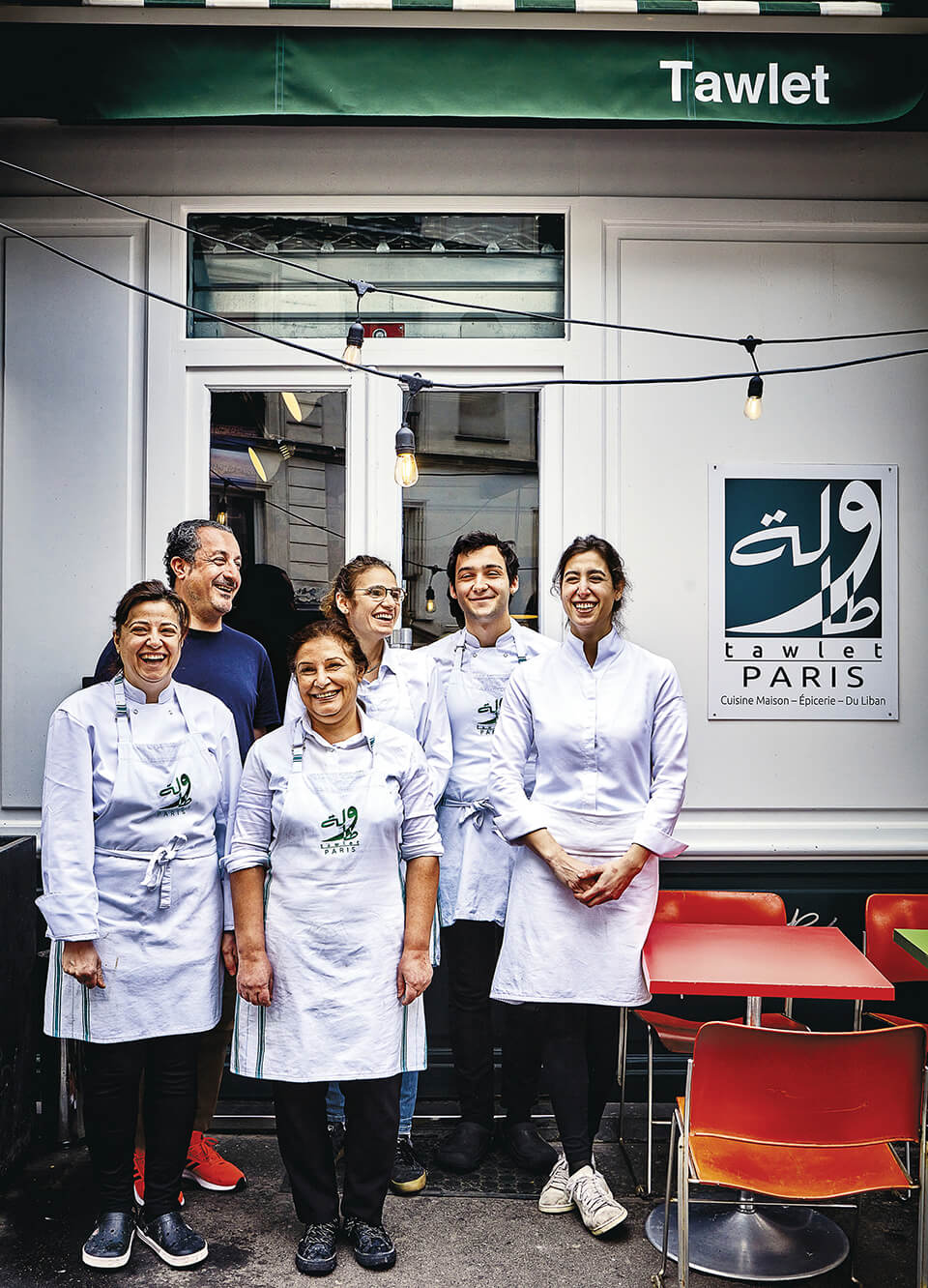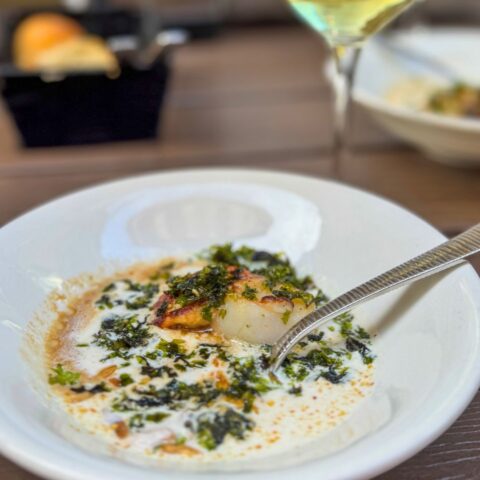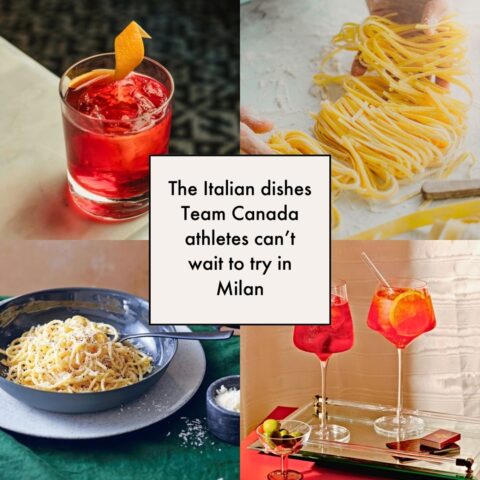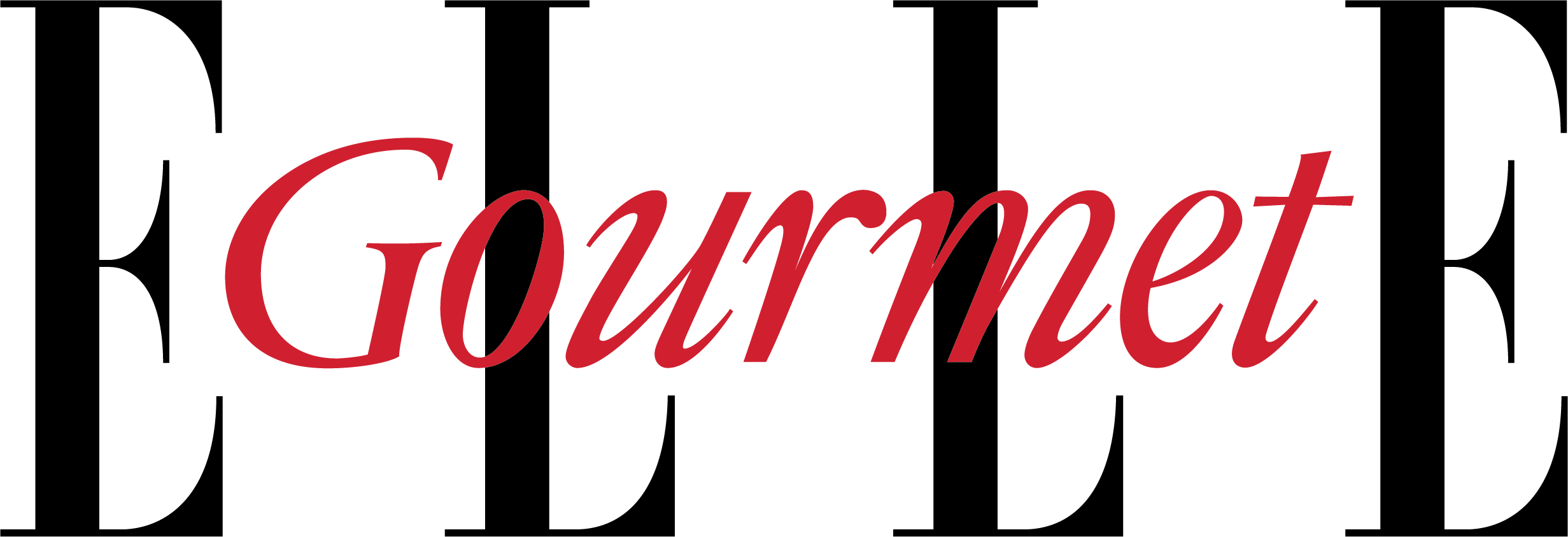Sometimes, tragedy can give way to something wonderful. That’s exactly what Kamal Mouzawak discovered after an explosion ripped through the Port of Beirut and damaged a large part of the city on August 4, 2020. In that moment, all the hope that the Lebanese food activist – whose motto is “make food, not war” – had carried for reconciliation within a country that had been exhausted by 40 years of political and denominational heartbreak vanished, even though the cause was later found to be improperly stored chemicals. “I experienced the explosion very closely,” says Mouzawak. “I told myself that if a month later, nothing had changed, I would leave Lebanon.” Although his projects there – like Souk El Tayeb, a community-driven farmers’ market and social enterprise that brings together food items from small businesses across Lebanon – continue, he kept his word. By the end of that year, Mouzawak was in Paris and ready to act.
Mouzawak’s first order of business upon landing in France? Figuring out how he could bring Tawlet – his homestyle Lebanese restaurants, which support local farmers, producers and cooks – to Paris. There are a number of deep links between France and Lebanon, including a vibrant community of young Lebanese people who, much like the entrepreneur, left their home and are bursting with talent. Mouzawak exudes the type of energy that can move mountains, and by January 2022, he’d made it happen: Tawlet Paris opened its doors not far from the Canal Saint-Martin, at the edge of the 11th arrondissement.

The space is filled with colour and light, and it has an eclectic aesthetic that was created with the help of Paris-based interior designer Jules Mesny-Deschamps. Just about everywhere you look are large shelves overflowing with jars stuffed with irresistible wonders, like freekeh (roasted green wheat), roasted eggplant, molasses, spices, olive oil and more. It’s exactly Mouzawak’s vision brought to life. “In Paris – just like in Beirut – Tawlet honours family recipes and home cooking,” he says. “Mezze is typical restaurant cuisine in Lebanon, but at home we eat completely differently, and that varies according to region, faith and season.” Tawlet Paris offers a weekly menu that focuses on a different region of Lebanon each day. Wednesday, for example, is southern-inspired with makhlouta, a villager’s whole-grain stew with a mix of vegetables, while weekends serve up a Beirut brunch, which includes foul (mashed beans), man’ouché (pizza-shaped dough topped with za’atar), labneh, halloumi and white coffee.

Behind Tawlet Paris is a team of young people with diverse backgrounds, like Tara Habis, a former architect who was part of the team that worked on the Louvre Abu Dhabi and is now the restaurant’s pastry chef. They all bring their experiences and personalities to Tawlet, crafting food that makes you feel transported from the first bite. “In Lebanon, the most sacred bond is the one created by food,” says Mouzawak. That is the pleasure you will no doubt share when you sit down at Tawlet’s generous table.
Tawlet Paris
2, rue de la Fontaine-au-Roi
75 011 Paris
06 73 92 49 12
soukeltayeb.com
Recipes from Tawlet Paris
Authentic Lebanese Tabbouleh
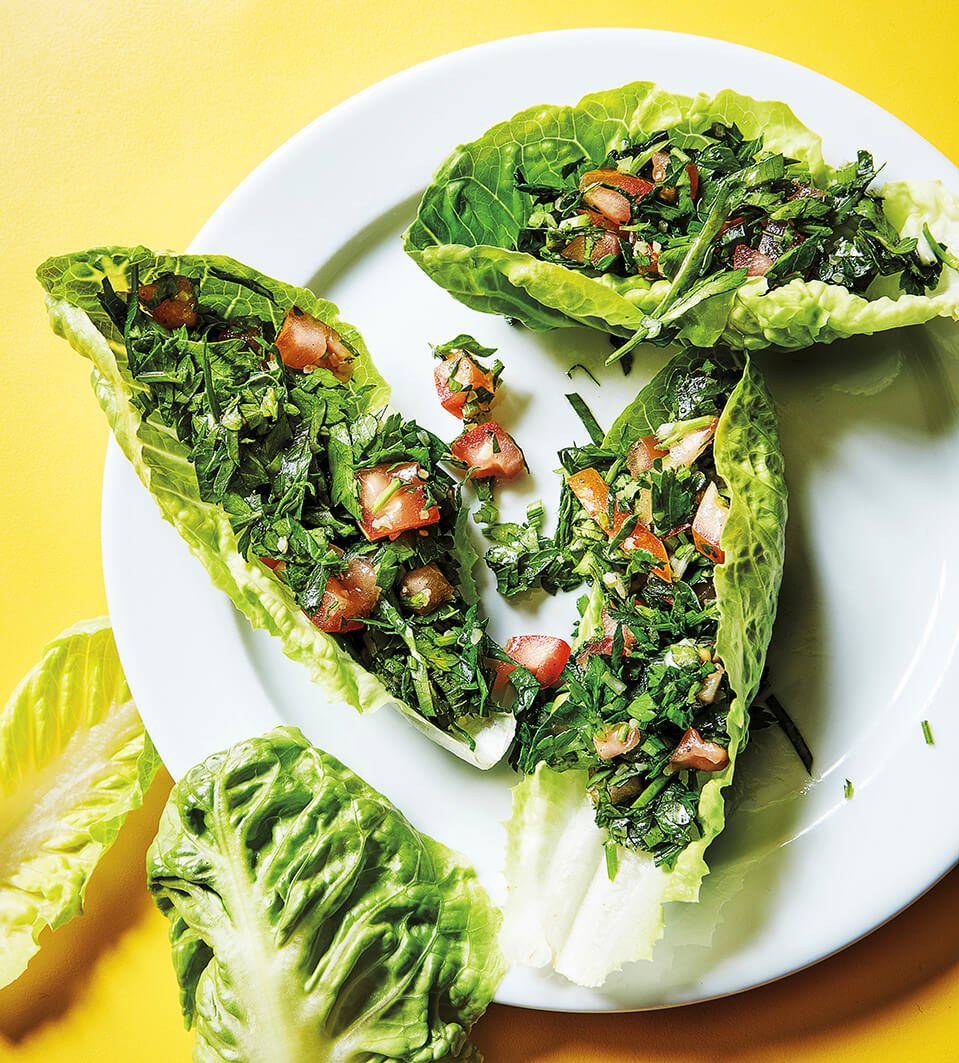
Many Lebanese tables are never without tabbouleh – a parsley-forward salad with herbs and bulgur – and you’ll understand why when you try making some yourself with this recipe from Tawlet in Paris. Serve it up hand salad-style.
GET THE RECIPE
Lebanese Knafeh
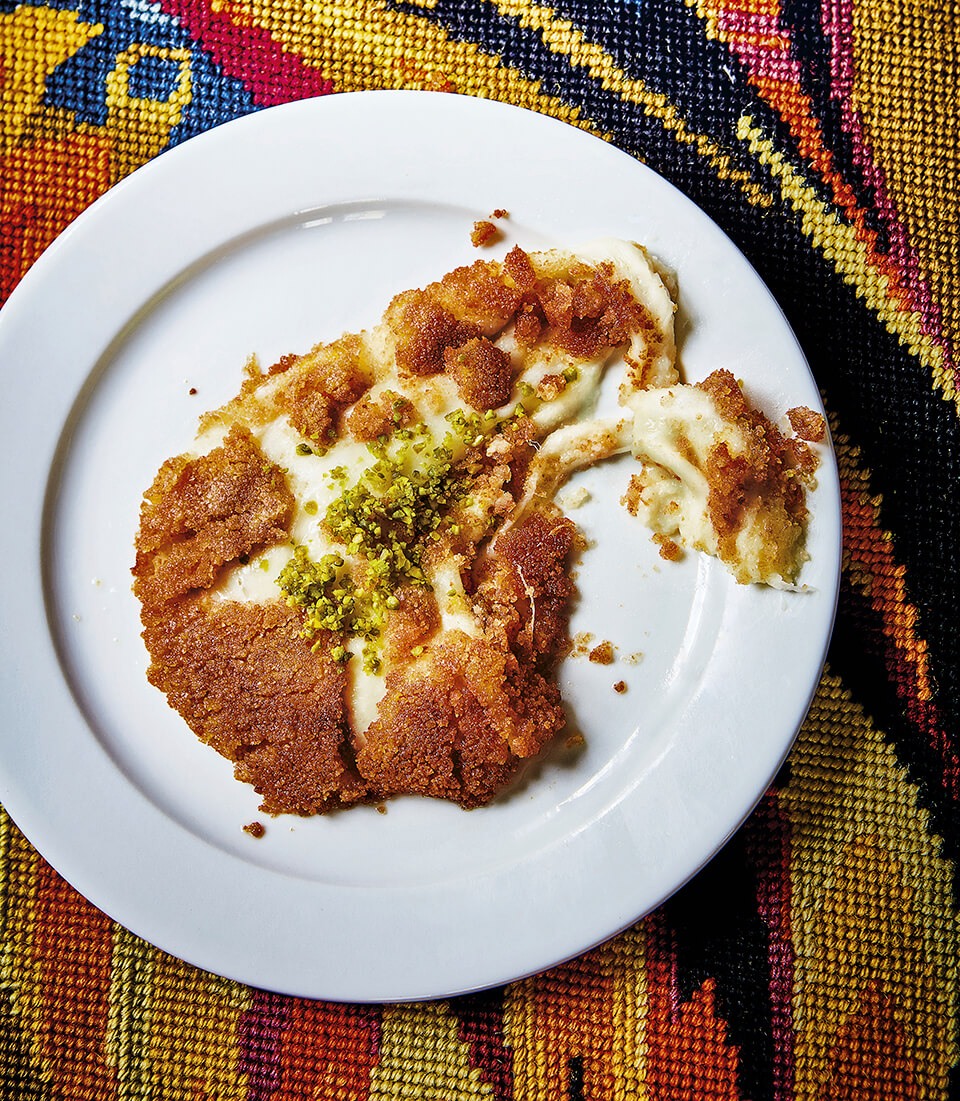
Knafeh is a traditional Middle Eastern dessert made with cheese. Tawlet’s version uses golden-brown breadcrumbs to soak up the floral sweetness that comes from orange-blossom water as well as a simple sugar syrup.
GET THE RECIPE
Makloutah
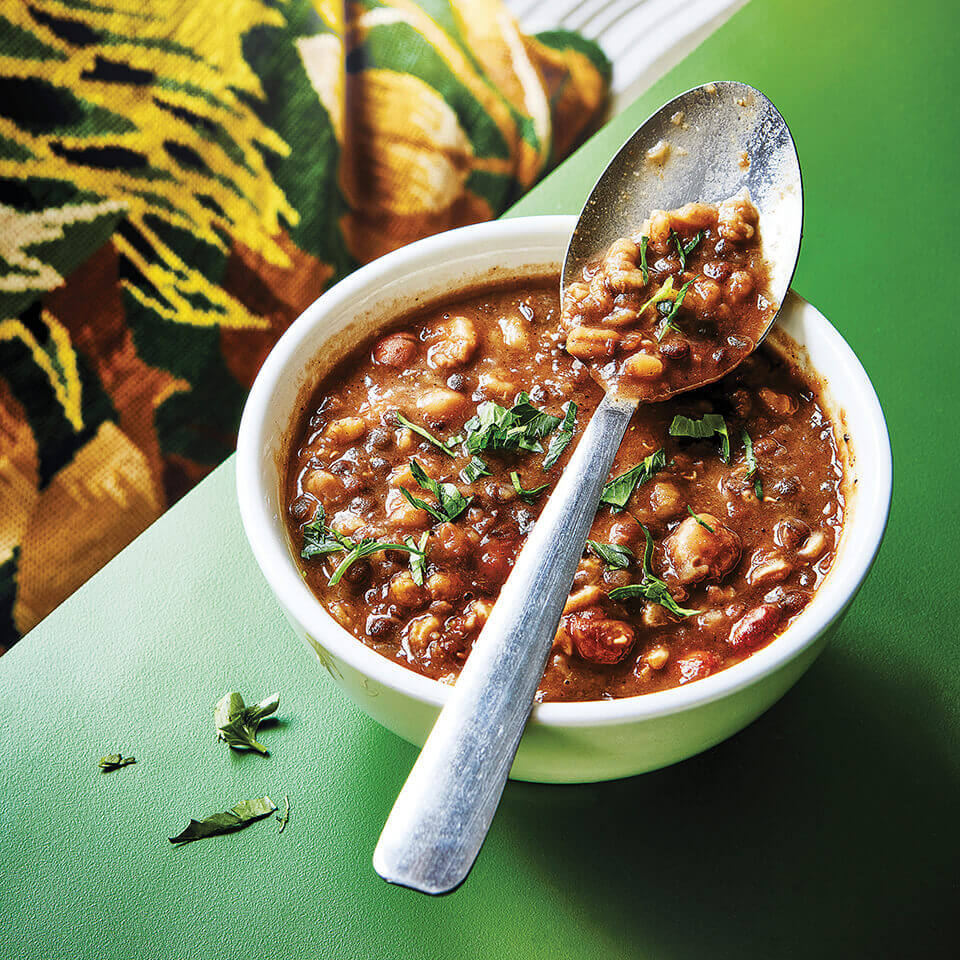
Makhlouta is a hearty stew of mixed whole grains. The easy, vegan-friendly recipe is perfect for lazy days because the ingredient list is made up of pantry staples you’ll almost always have in stock.
GET THE RECIPE

